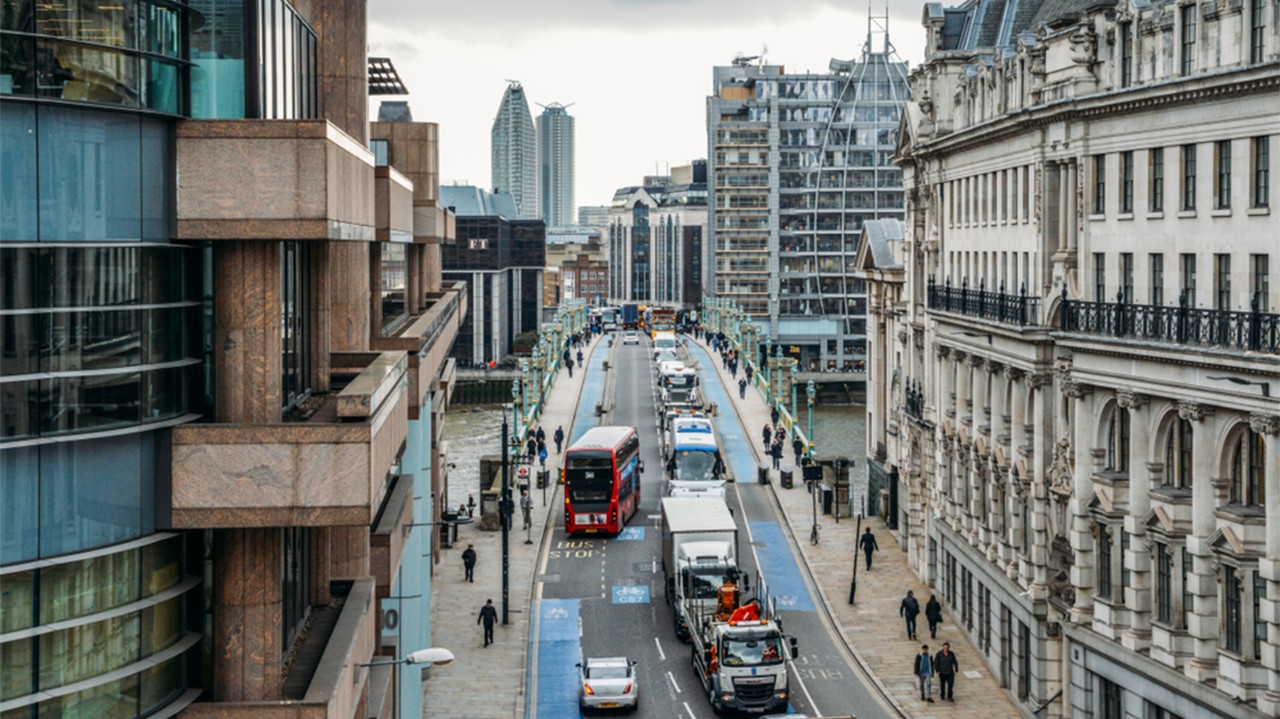
MAKING CLEAN AIR ZONES WORK FOR YOUR BUSINESS
The introduction of Clean Air Zones across a growing number of cities is being led by London.
Its Ultra Low Emission Zone commenced on April 08, 2019, charging non-compliant HGVs £100 per day to enter central London.
From next year, Birmingham will also introduce a Clean Air Zone (CAZ) which carries a charge of £50 for HGVs, coaches and buses if they exceed the CAZ emission restrictions.
Both London and Birmingham will require lorries, buses and coaches to be Euro VI compliant to avoid a charge.
Why compliance matters
The case for running a newer Euro VI truck that is CAZ compliant is strong.
Compliance with the new CAZ regulations is not only financially beneficial - no more charges to pay - it brings health benefits to city residents.
The London ULEZ is on continuously - for operators that’s a potential weekly bill of £700. However, moving to a new, low emission truck means operators benefit not only from a newer truck that is operationally more fuel-efficient, but also saves on CAZ charges.
It’s a double win financially.
A latest generation truck also provides access to inner cities without the need for a last mile delivery solution. These allow non compliant trucks to off-load freight outside a CAZ to smaller compliant trucks for the delivery to the end destination. Such operations side-step the £100 charge but are costly and inefficient to operate.
There are further business advantages to embracing cleaner technology. The Energy Saving Trust says that it places your business as an environmental leader, often attracting further commercial agreements as a result.
“Operating a vehicle in a more safe and sustainable way comes with many benefits. From a business perspective, elements such as better managed fuel expenditure, more efficient operations, and fit for purpose vehicles can result in reduced cost,” says the energy efficiency organisation.
“Taking steps to increase safety and sustainability in the operation of fleets and ensuring that you are making the changes to comply with emissions requirements and Clean Air Zones (or Zero or Ultra Low Emission Zones) also provides an opportunity to be a leader in your industry.”
While much of the focus on CAZs is about their introduction, CAZ schemes are not permanent. They are designed to improve the air quality of a city that has fallen below legal standards. Once a city has regained its cleaner air on a sustainable basis, the requirement for a CAZ will be over.
“There have been many negative reactions to the implementation of Clean Air Zones,” commented Alan Rhodes, managing director, Scania Financial Services.
“While this is understandable, thanks to the cost implications of non-compliance, I think what has been missed is the very positive opportunity for operators to embrace higher emission standards - and benefit from them in reduced operational costs across the piece. Greener technology brings cost savings - and helps improve air quality.”
Scania Financial Services has a range of finance solutions that can help operators upgrade to newer technology for greater operational efficiency. To discuss how we can help please contact us to speak to a member of our sales team.